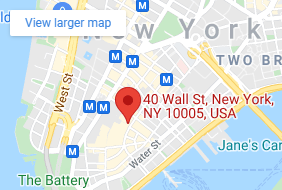There are thousands of products on the market, each of which can cause harm to the consumer or user of the product. When injury occurs as a direct consequence of use, there are various theories of law and legal remedies available to the consumer. For example, the product may have a design defect, or it may have been manufactured with a defective part, or it may have been manufactured negligently (below the reasonable standard of the industry), or it may have failed to affix warnings of its dangers on the product sufficient and prominent enough to alert the consumer of its potential to cause harm if used improperly, etc.
The subject of products liability law in New York and indeed in most states is so complex with its many nuances and changes resulting from its high-court decisions, as to fill an entire semester of a law school curriculum in a course titled “Products Liability Law”.
This article is not however, inspired by a “products liability” case but rather one that is rooted in negligence. The difference is that the target defendant in a products case is usually the manufacturer. The target in the case that follows, however, is the retailer, the one who sold the manufactured product to the consumer.
As reported in the New York Law Journal on August 27, 2012 (Kaplan v. Home Depot USA, Inc., United States District Court for the Southern District of New York, District Judge Engelmayer), the plaintiff Kaplan went to an upstate Home Depot store and asked an employee where he could find a pump that could remove gasoline from a jet ski. According to Kaplan, he was directed to the section pointed out by the salesman. Kaplan claimed that the pump designated as the type he was seeking could be used to remove gasoline from a jet ski. Having received that recommendation from the salesman, Kaplan purchased the pump later claiming that he paid cash for it. Once home, he hooked the pump to an electrical source and began to pump gasoline out of the jet ski. Within seconds, a fire erupted and Kaplan suffered serious burns that required care in a hospital burn unit for weeks, in addition to after care following his discharge.
Kaplan did not bring suit against the manufacturer since there were many “red flag” warning tags affixed to the pump stating in essence that the pump should only be used to remove “water”, and that it specifically should not be used to remove flammable substances since a fire or explosion could result. In fact, the instruction manual also contained many warnings to the extent that the pump should only be used to extract “water”. The language in both the attached warnings on the pump and those contained in the manual were clear and prominently displayed.
In view of the warnings provided by the manufacturer, Kaplan chose not to bring suit against the manufacturer since his case would have been dismissed based upon the presence of the warnings that were prominently displayed, as well as Kaplan’s misuse of the product.
Kaplan did however, bring suit against Home Depot, the retailer, on the grounds that Home Depot through its salesman, was negligent in selling Kaplan its product that was intended to pump water instead of gasoline. Kaplan also claimed a breach of express warranty and implied warranty, as well as the negligent hiring and lack of proper training provided by Home Depot to the salesman who transacted the sale.
In a motion for summary judgment, Home Depot claimed it did not sell the pump in question to Kaplan. Kaplan first stated his payment was in cash, that he could not locate the receipt, and did not know the name of the salesman. He later advised the court that he paid using a debit card. Given this information, the court gave leave to Home Depot to subpoena Kaplan’s bank records despite the fact that the time for such disclosure had already expired.
As for the warranty issues, the court concluded that they did not pertain to Home Depot and dismissed those causes of actions.
With regard to the “negligent hiring” and “failure to instruct” claim, they too were struck down by the court since Kaplan was unable to identify the salesperson who sold him the pump.
Concerning the negligence cause of action, the court concluded that it would be a question of fact for a jury to consider as to whether a pump for water was sold to him when, as claimed, he requested a pump for gasoline. Even assuming that the jury found for Kaplan on this issue, the fact that Kaplan disregarded all of the prominent “red flag” warnings would have wiped out any verdict amount, or significantly reduced by reason of Kaplan’s own comparative negligence in using a pump to extract gasoline when it prominently warned that such pump should be used only to extract water.
The issue of whether the pump was purchased at Home Depot is yet to be decided. Should it be found upon disclosure that Kaplan’s bank debit statement is devoid of any such transaction, the likelihood is that his case will be dismissed either before, during, or at the end of the trial which is now scheduled for December 3, 2012.
The Kaplan case raises a number of interesting legal issues and also provides a primer for how best a consumer who purchases a mechanical product can protect himself:
- Purchase the item with a credit or debit card. Such a transaction will leave a paper trail naming the store, the date of purchase, the item, the price, and the name or identification of the salesperson.
- If payment is made in cash, keep the receipt, since it will contain all the information in “1” above.
But most importantly, read the instruction manual and the warnings. Should you suffer injury, it is essential that you save the product and keep it in a safe and protected place until delivered to an experienced product liability trial lawyer who will then have a reputed engineer inspect every aspect of the product and render a report of his or her findings. Oftentimes what a consumer fails to see is discovered by an expert whose findings, combined with the experienced manner with which they are presented at trial, can often be the difference between success and failure.




























